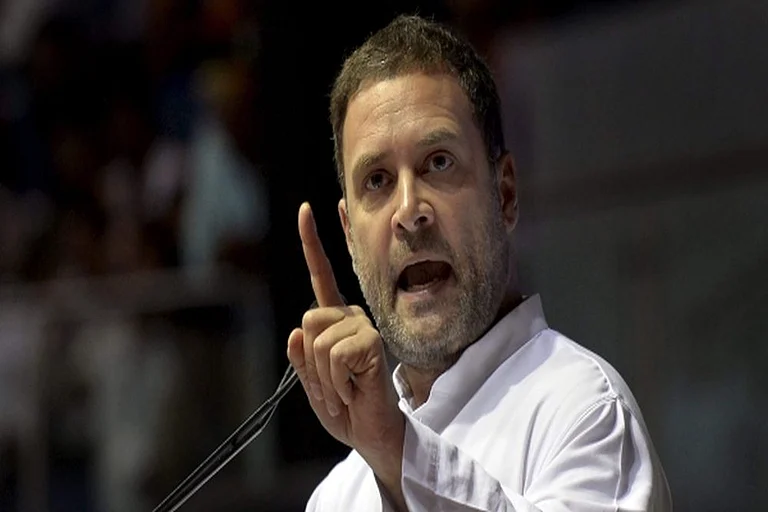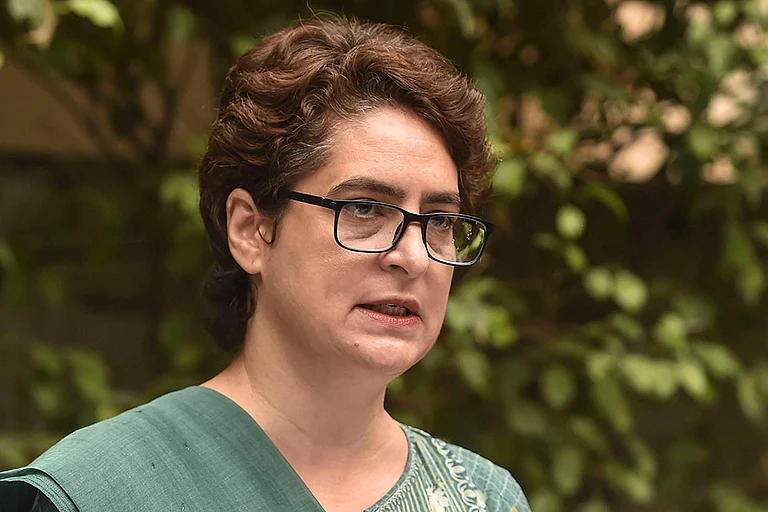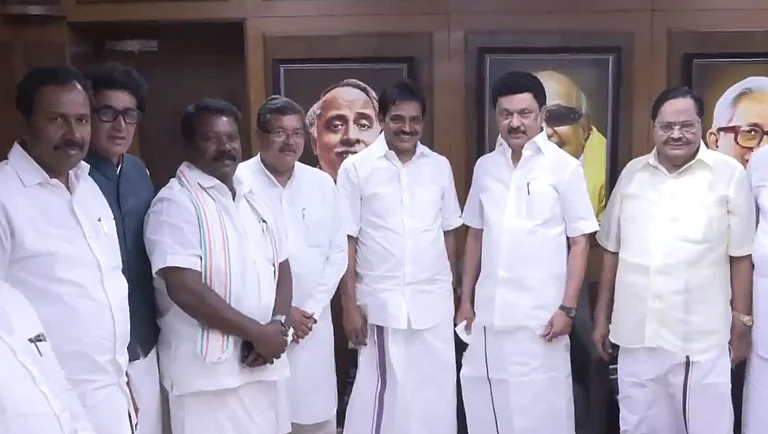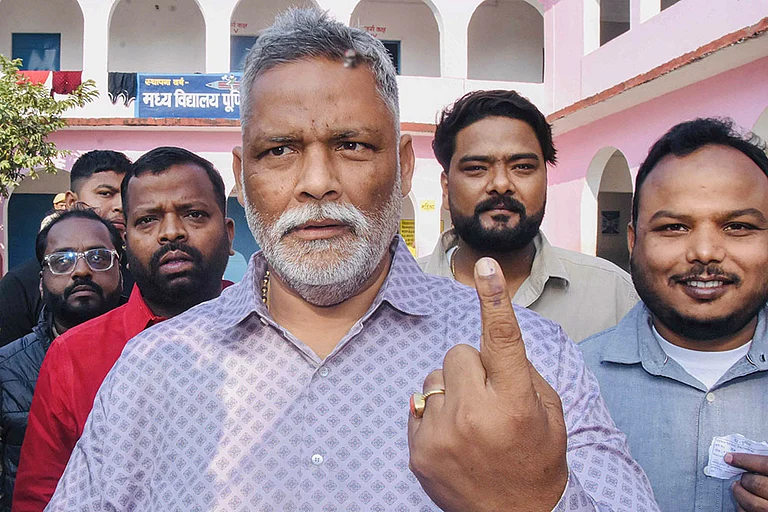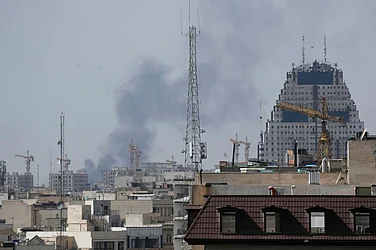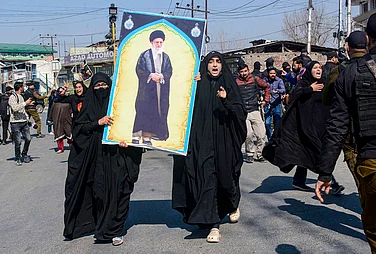
Summary of this article
Ongoing voter adhikar yatra in Bihar has made a splash among people.
There's renewed talk of opposition solidarity spreading out from the state.
The RJD and Congress party have old ties, built on shared ideology.
Indian politics thrives on unpredictability—alliance shifts, narrative flips and old rivalries turning into diehard partnerships. Sometimes, all of it happens in the blink of an eye. Tamil Nadu Chief Minister MK Stalin, one of the earliest and most consistent backers of the INDIA bloc of opposition parties, has now promised to step into Bihar’s political theatre by joining the opposition’s ‘vote-chori’ campaign. He’s expected to ride into the state, where Congress leader Rahul Gandhi is thrumming around on his motorbike on a fortnight-long yatra.
Stalin’s move signals not just solidarity across INDIA constituents, but an acceptance that the battle of democracy will be fought beyond Bihar’s state limits. Former Uttar Pradesh Chief Minister Akhilesh Yadav will also join Stalin, and Gandhi, and the Rashtriya Janata Dal’s Tejashwi Yadav, adding weight to the opposition charge that the Special Intensive Revision (SIR) exercise in Bihar is not a simple clean-up of the electoral rolls. They are, in fact, refocusing attention on the fault lines of federalism and the shifting sands of Indian politics—an issue Outlook has regularly reflected on through ground reports, expert columns and regular essays.
This may appear to be a moment of rare solidarity among opposition parties, who often find themselves at loggerheads over local competitions. And the question will remain: will it last? But it's not for the first time that the opposition has seemed to quarrel, grow distant, then mend fences. Recall Congress leader Sonia Gandhi's phone call in 2021 to Lalu Prasad Yadav, the Rashtriya Janata Dal (RJD) supremo, striving to mend fences after he questioned the national party's contribution to their alliance in the state. In fact, the very first call to unite national leaders in the last eleven years came in 2016, again after then Congress president Sonia Gandhi had called Lalu. In 2021, Sonia Gandhi had playfully reprimanded Lalu, reminding him that having seven daughters should encourage him to back the Women's Reservation Bill in the Lok Sabha. There was also a time when Lalu took on the protective patriarch's approach towards Gandhi, promising never to 'abandon' her as her bid for presidentship of the Congress party was underway.
The July 1, 2024 issue of Outlook, titled ‘Ideology is for the Library’, reflected on how voters in the 2024 elections reaffirmed democracy as an ideology against a decades-long project of crony capitalism and majoritarian politics. Harish Khare described in ‘The Resistance Has Just Begun’, how, despite the ruling elite’s confidence and widespread religious mobilisation, voters—even in the new Hindutva crucible Uttar Pradesh—rejected the use of faith for politics. The verdict symbolised a resistance, with the Constitution and fairness at the centre of the electorate’s concerns, while signalling to both opposition and the ruling parties that democracy requires vigilance and accountability.
Outlook reporters Snigdhendu Bhattacharya and Abhik Bhattacharya write in ‘Coalition Compulsions: How Modi's Third Term Hinges On Allies’ about how coalition compulsions following the 2024 results have altered the political landscape. With the BJP falling short of a majority, the survival of Prime Minister Narendra Modi’s third term hinged on allies like Chandrababu Naidu’s Telugu Desam Party and Bihar Chief Minister Nitish Kumar’s Janata Dal (United), which are still playing out on the language debate and electoral roll revision fronts in Andhra Pradesh and Bihar, respectively. Past frictions with allies, combined with opposition unity under the INDIA bloc mean that the BJP must tread carefully while managing policy prescriptions that make life easier, not more difficult, for ordinary people.
Similarly, the November 2023 issue of Outlook, ‘India, That Is Bharat’, contextualised this new opposition strength, noting how the INDIA bloc sought to challenge the BJP’s dominance by embracing diversity as a counter to the ruling party’s drive for uniformity. In ‘Has INDIA Been Able To Set The Political Narrative For 2024 Lok Sabha Polls?’ Rakhi Bose describes social media campaigns, caste census advocacy and symbolic religious narratives, the alliance tried to reset the political agenda. Analysts however, warned that only when alliances align with real ground discontent can they succeed.
In ‘INDIA Will March On To Stifle BJP's Dream Of Ruling Bharat’, Sandeep Saurav, MLA of the CPI-ML from the Paliganj seat in Bihar, writes about the BJP’s attempt to pit ‘India’ against ‘Bharat’. The attempt revealed both anxiety over INDIA parties coming together and its fear that Hindutva politics was being complicated by its demands for social justice.
By May 2024, the campaign trail was dominated by trivial debates—Kejriwal’s insulin, Sam Pitroda’s inheritance tax remark, Tejashwi Yadav’s Navaratri fish—while critical issues of unemployment, health, education, corruption and women’s safety remained sidelined. In its 11 May 2024 issue titled ‘Voice Of The Electorate’, Outlook’s Satish Padmanabhan contrasts this visionless electoral theatre with views from the ground, where voters grappled with real struggles like water scarcity, land rights and religious antagonism. He writes, in ‘Try The Fish, Sam!’, that Outlook will hold on to its journalistic standards and its reporters will continue to bring stories from the ground—on the changing ethos of Varanasi, red-sand mining in the Naxal areas of Gadchiroli, Adivasi identity in Maharashtra, polarisation in Karnataka, water scarcity in Rajasthan, the ghettoisation of Gujarat’s Muslims, declining voter interest in Kerala and much more.
Across these issues, a clear thread is apparent: spectacle dominates the headlines, but Indian democracy is shaped by deeper tensions: between centralisation and coalitions, identity politics and social justice and belonging and exclusion.



